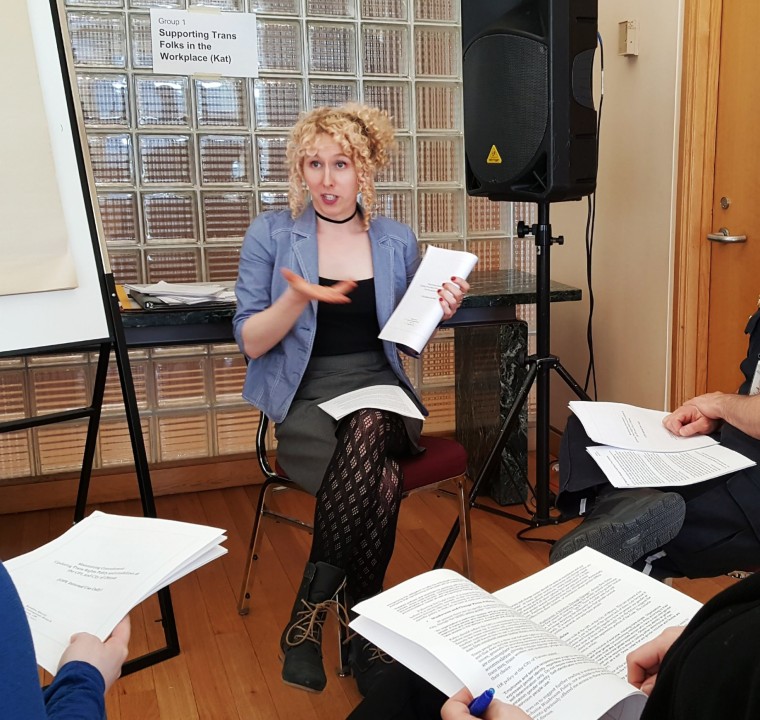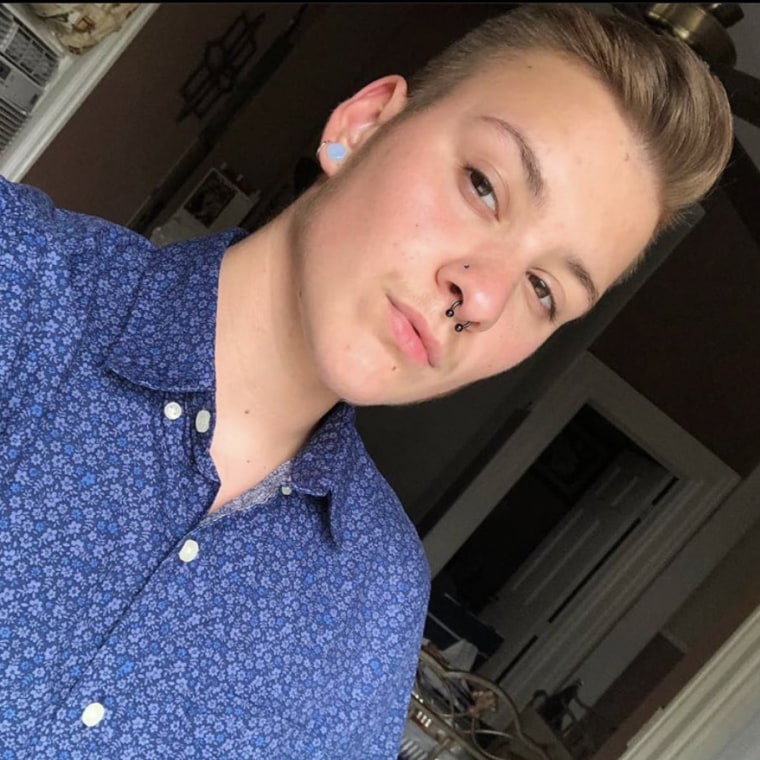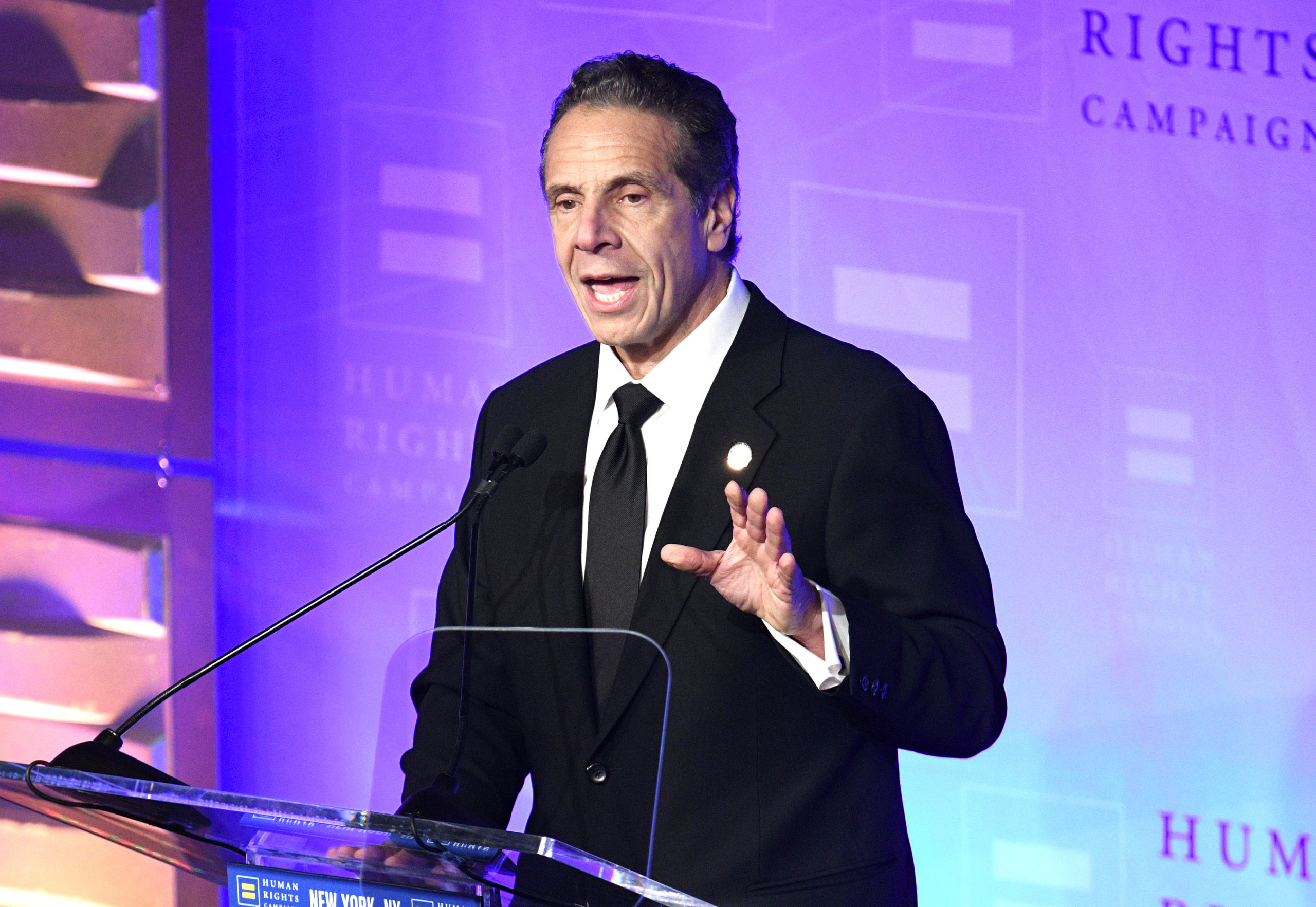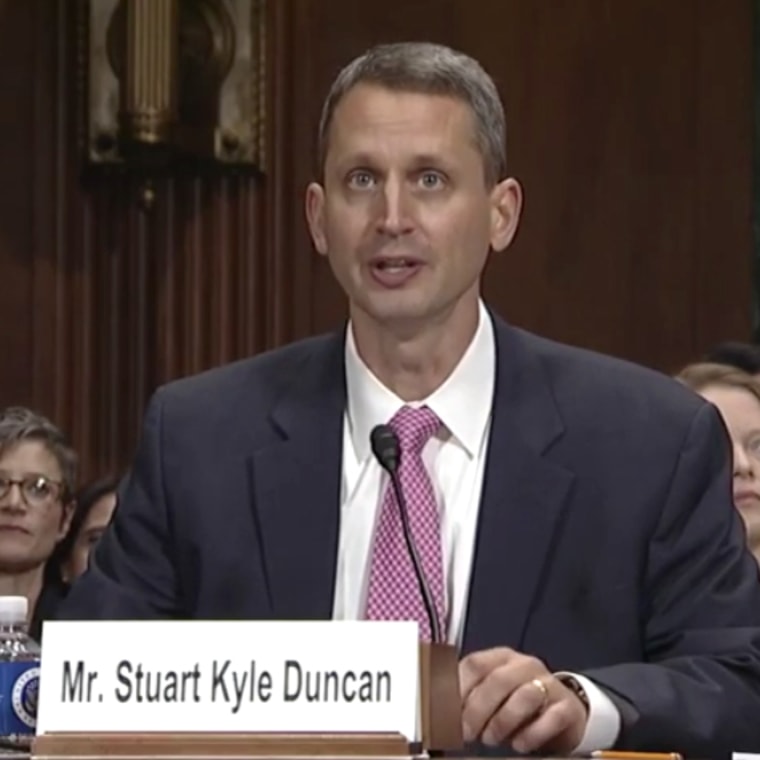Remembering Lorena Borjas, the Mother of a Trans Latinx Community
Lorena Borjas had a wheelie bag, and in the bag she had the world. The first time Lynly Egyes met her, Borjas pulled a birth certificate out of the bag. Egyes was then a lawyer with the Sex Workers Project at the Urban Justice Center and had recently taken the case of a young immigrant transgender woman who was in jail, facing felony assault charges for defending herself against an attacker—an exceedingly common predicament. “Lorena came into my office and said, ‘I hear you need the birth certificate for one of the girls,’ ” Egyes told me on the phone. “I said, ‘Who are you?’ ‘I am Lorena!’ ” Borjas also convinced Egyes to take on a second case that stemmed from the same incident; the proceedings dragged on for about a year, with frequent court appearances. Borjas always came to the hearings and brought supporters. “She felt it was important for the judge to see that these two young women were loved,” Egyes said.
Borjas died on Monday, at Coney Island Hospital, in Brooklyn, of complications from covid-19. She left an orphaned community of transgender women, especially Latina immigrant women in Queens, and countless L.G.B.T.-rights activists who looked to her for guidance, inspiration, and love. About two hundred and forty people gathered for a memorial on Monday night, albeit via Zoom, which added a layer of heartbreak to the mourning of a person whose legacy was one of building community, in the streets and in apartments in her Jackson Heights neighborhood, and of taking close, personal, physical care of people.
Borjas was born in Veracruz, Mexico, in 1960. At seventeen, she ran away to Mexico City, where she lived in the streets. At twenty, she crossed the border into the United States, where she hoped she would be able to receive hormone treatments. She made her way to New York City, where she studied for her G.E.D. and then studied accounting.The New Yorker’s coronavirus news coverage and analysis are free for all readers.
“Back then, the trans community didn’t have spaces,” Cristina Herrera, the C.E.O. and founder of the Translatinx Network, a group for transgender immigrants, told me on the phone. “We met at Port Authority—that was the main place, because you could stay indoors.” Herrera, who is from El Salvador, came to New York in 1985, at the age of fifteen, and met Borjas soon after. “She was like the social worker in our community,” Herrera said. “She was the case worker.” Borjas guided other trans and gay immigrants to the resources she had found: E.S.L. classes, G.E.D. tests, community colleges, H.I.V. screening, immigration lawyers, and research studies that paid for participation.
Borjas was able to obtain legal status under a Reagan-era amnesty. But, in the nineteen-nineties, she developed an addiction to crack, which, Herrera told me, led to more and riskier sex work and, finally, to a relationship in which Borjas was trafficked. She was arrested several times, making her ineligible to renew her green card or apply for naturalization.
In the late nineteen-nineties, Borjas escaped from her abuser. She got clean. Then she got to work helping people who hadn’t been as lucky. “In the morning, she would get up and go to the Department of Health and take free condoms there,” Egyes told me. “Then she might also go to a food pantry. And at night she would walk around with her wheelie bag, distributing the condoms and the food.”
One of Borjas’s closest friends, Cecilia Gentili, who is forty-eight, told me that she met Borjas in a bar in Jackson Heights, in 2005. Gentili, who had come from Argentina five years earlier, was undocumented then and doing sex work. A couple of years later, Gentili got a job at Apicha, a clinic for the L.G.B.T. community, and asked Borjas to help her reach out to potential clients. “She said, ‘Come with me to hand out condoms,’ ” Gentili said. “We started at 11 p.m., up and down Roosevelt Avenue. She said, ‘When you give out condoms, you can give out referrals to your clinic.’ ” They walked the streets until three or four in the morning. At the time, New York police often used possession of condoms as evidence in prostitution cases, and word on the street was that one shouldn’t carry more than three at time. So Borjas considered it her duty to replenish sex workers’ supplies of condoms, a couple at a time, all night long. “She showed people that they had family,” Egyes said of Borjas’s condom-distribution work.
Chase Strangio, the deputy director of the L.G.B.T. and H.I.V. Project at the American Civil Liberties Union, met Borjas more than ten years ago, when Strangio was working at the Sylvia Rivera Law Project. Borjas worked to educate him about patterns of arrests of transgender women of color. “She was so connected to the community that when someone would get arrested, the first phone call was to Lorena,” Strangio said. In 2012, together the two founded the Lorena Borjas Community Fund, which gives bail and bond assistance to transgender immigrants in criminal and immigration proceedings. This was the kind of specific need Borjas’s knowledge of the community could help identify. At the time, the Obama Administration was increasing pressure on local police to coöperate with Immigration and Customs Enforcement; when immigrants ended up behind bars—for whatever reason—they faced the risk of deportation, and so it was essential to get them out fast.
Even while Borjas was advocating on behalf of transgender immigrants, she was at risk for being deported herself. A couple of years into the friendship, Borjas finally asked Egyes to look at her own case. Egyes joined the effort to vacate her convictions—it worked with some but not all of them—and eventually filed a petition for a pardon. In her letter to Governor Andrew Cuomo, Egyes described some of the work that Borjas had done. “At meeting after meeting with law enforcement, many clients explained how Lorena was the reason that they were able to escape their trafficker,” Egyes wrote. “At one point, former Assistant United States Attorney, [name redacted], asked if Lorena was a real person because she seemed to help so many people but wasn’t affiliated with any organization. I explained that Lorena is in fact real and that she helps people because she too was a victim and wanted to ensure that these girls had a way out of bad situations.” Egyes attached a list of more than twenty awards, certificates, and proclamations Borjas had received in recognition of her activism. Governor Cuomo pardoned Borjas in 2017.
Borjas was not paid for most of her work. She cobbled together a living: she was paid for some talks, outreach, and counselling sessions, and sometimes she cleaned houses. “She made the money stretch,” Egyes said. “She gave me hope that people do good things because they are good people, not because they would get anything for it.”
“None of her work was with a ‘rescuing’ mentality,” Gentili said. “It was, We help because we help each other. She was the mother of the trans Latinx community.”
Strangio recalled that, in 2011, Borjas threw a big party for him, complete with a cake. It wasn’t his birthday or a date of any other significance. When Strangio asked what the party was for, Borjas answered that it was a way of giving thanks. “She celebrated people,” he said. A year later, when Strangio and his then partner were expecting a baby, Borjas threw them a baby shower. “She raised money and got us a stroller and a car seat,” Strangio told me. “I mean, we are lawyers! But, no, ‘You are going to have a child, and we are going to take care of you. That’s what we do.’ ”
Last year, Borjas became a U.S. citizen. Her work had inspired several nonprofits, including the one that Herrera runs. “She was starting to see the fruits of her labor,” Herrera said. And Borjas herself was finally safe. “She had made it through the aidsepidemic!” Herrera exclaimed. “She made it through the crack epidemic! She made it through the violence we faced in the nineties and two-thousands, with immigration! I thought we were going to have her until she was in her seventies or eighties.”
There is a particular gut punch that coronavirus deaths pack for people who saw their generation decimated by aids. “When we met, we had a community of fourteen,” Herrera said. “Recently, there were three of us left, two H.I.V.-positive and one negative.” Borjas was positive. “And now there are only two of us left.”














